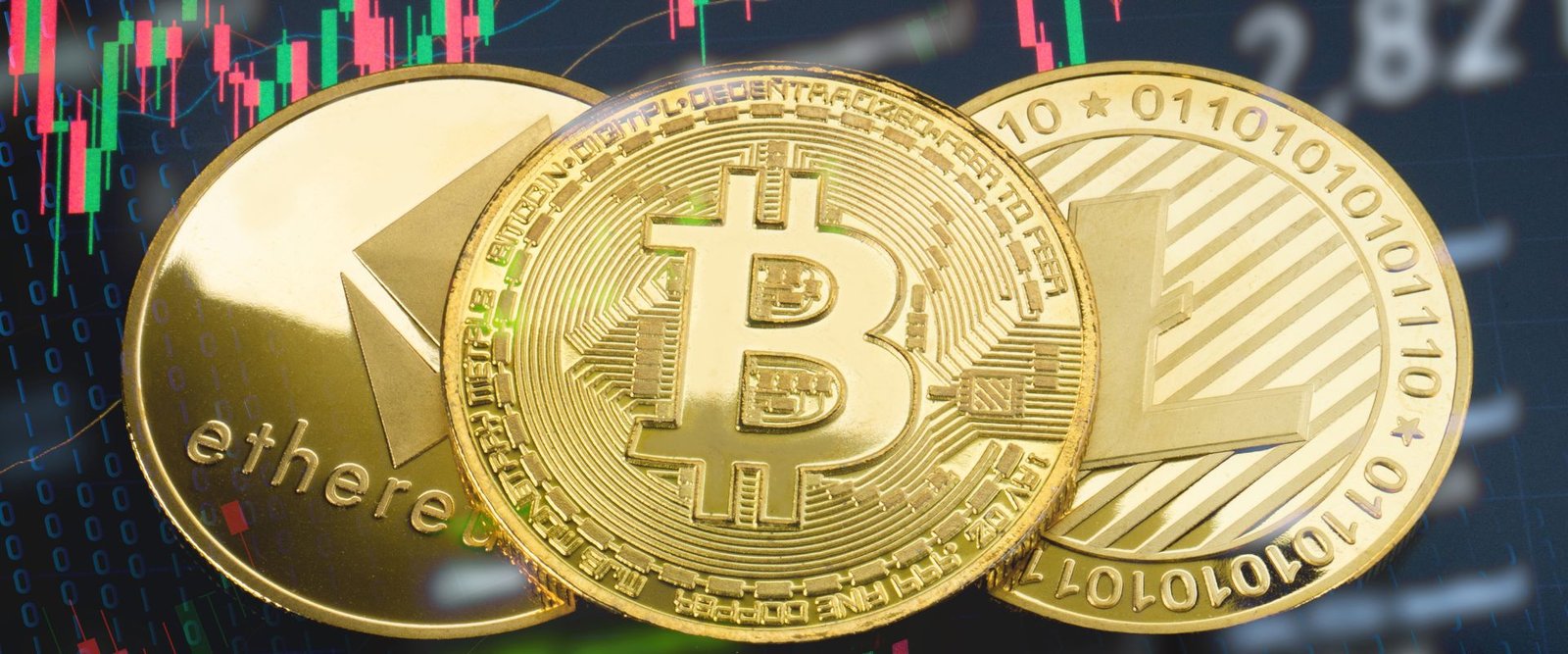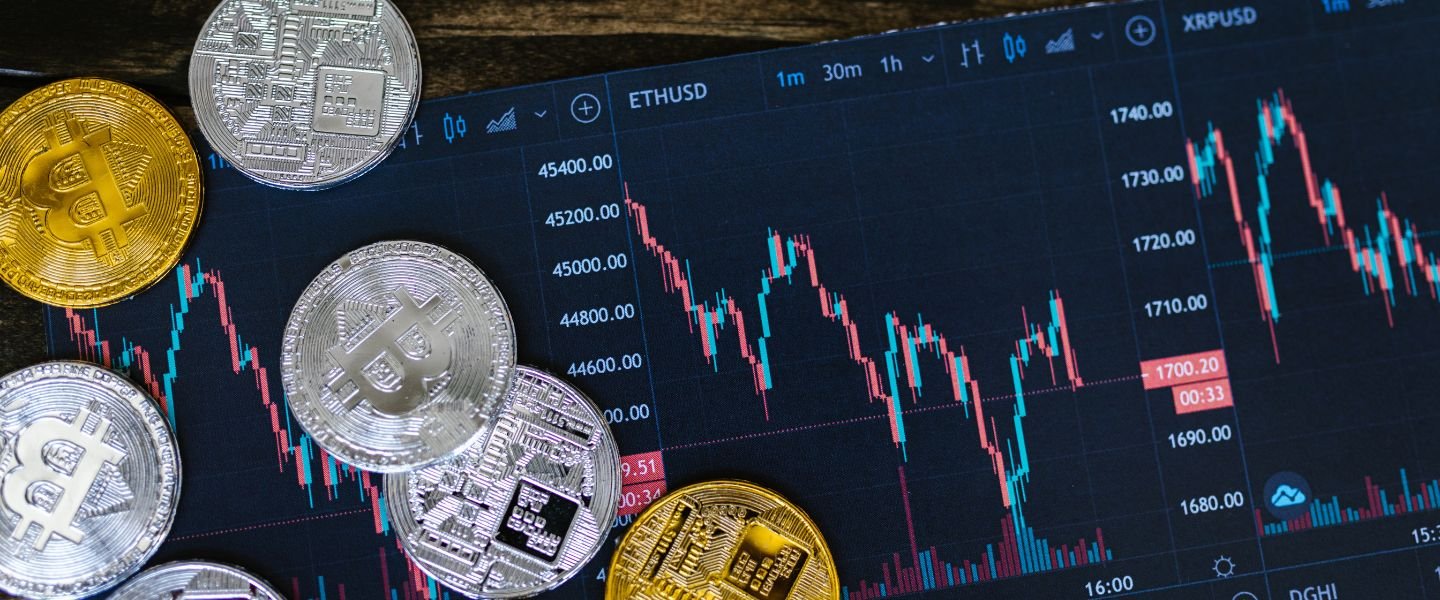
In recent years, Dubai has emerged as a global hub for cryptocurrency and blockchain technology, offering a progressive regulatory framework that attracts crypto businesses from across the globe. Whether you’re looking to establish a crypto exchange in Dubai or provide other digital asset services, obtaining the proper license is a crucial first step in your journey.
This comprehensive guide will walk you through everything you need to know about securing a crypto license in Dubai, including the various licensing options, requirements, and steps involved in the application process.
Understanding Dubai’s Cryptocurrency Regulatory Landscape
The United Arab Emirates (UAE) has taken significant strides to position itself as a leading destination for crypto trading companies and digital asset businesses. Unlike many regions where cryptocurrency regulations remain unclear, Dubai has developed a structured and transparent framework.
Key Regulatory Bodies Overseeing Cryptocurrency in Dubai
Several regulatory authorities oversee cryptocurrency activities in Dubai and the wider UAE:
- Dubai Virtual Assets Regulatory Authority (VARA) – Established specifically to regulate virtual asset service providers operating in Dubai
- Dubai Multi Commodities Centre (DMCC) – A free zone authority that offers specialized crypto licenses for businesses based within its jurisdiction
- Dubai International Financial Centre (DIFC) – A financial free zone with its own regulatory framework for financial services, including cryptocurrency businesses
- International Free Zone Authority (IFZA) – Another free zone option with various licensing solutions that can accommodate cryptocurrency exchanges
These regulators work together to create a comprehensive ecosystem that fosters innovation while maintaining high standards of consumer protection and market integrity.
Types of Crypto Licenses Available in Dubai
Depending on your business model and specific activities, several licensing options are available for crypto businesses in Dubai:
VARA Licenses
VARA offers different categories of licenses based on the specific activities you intend to conduct:
- Exchange License – For operating a cryptocurrency exchange platform where users can buy, sell, and trade digital assets
- Broker-Dealer License – For businesses that facilitate transactions between buyers and sellers of cryptocurrencies
- Custody License – For providing custody and safekeeping services for digital assets
- Advisory Services License – For offering advice on cryptocurrency investments and related matters
DMCC Crypto License
The DMCC license is particularly popular among crypto entrepreneurs due to its comprehensive nature and the benefits of operating within the DMCC free zone. A DMCC crypto license allows businesses to engage in:
- Operating a cryptocurrency exchange
- Blockchain development and consultancy
- Bitcoin and altcoin trading
- Crypto wallet services
- ICO and token issuance activities
Other Free Zone Options
Other free zones like IFZA also offer relevant license categories that can accommodate cryptocurrency businesses. The IFZA activity list includes options suitable for various crypto-related services.
Benefits of Obtaining a Crypto License in Dubai
Getting a crypto license in Dubai gives your business legal protection, tax benefits, and access to trusted banking. It also boosts your reputation, helping you gain investor and customer trust. With clear rules and a supportive environment, Dubai is one of the best places to grow a crypto business today.
Strategic Location and Business Environment
Dubai offers a strategic location between East and West, making it an ideal hub for global cryptocurrency exchanges. The city’s advanced infrastructure, technological readiness, and business-friendly environment provide the perfect foundation for crypto businesses to thrive.
Tax Advantages
One of the most compelling reasons to obtain a crypto license in Dubai is the favorable tax regime:
- 0% personal income tax
- 9% corporate tax (with exemptions available in certain free zones)
- No capital gains tax on cryptocurrency investments
- No VAT on cryptocurrency transactions
Banking Access
Licensed crypto businesses in Dubai have better access to banking services compared to unlicensed entities or those operating in jurisdictions with unclear crypto regulations.
Legal Certainty
With a Dubai crypto license, your business operates within a clear legal framework, reducing regulatory risks that are common in the cryptocurrency industry.
Global Reputation
A UAE crypto exchange license enhances your company’s credibility and reputation in the global market, potentially attracting more users and investors to your platform.
Requirements for Obtaining a Crypto License in Dubai
To get a crypto license in Dubai, you need to register your company, have a clear business plan, secure office space, and meet compliance standards like AML and KYC. Authorities also check your technical systems, team background, and financial strength to ensure your crypto business is safe, transparent, and well-prepared.
General Requirements
Regardless of the specific type of license you’re applying for, certain baseline requirements apply:
- Company Registration – You must establish a legal entity in Dubai or one of its free zones
- Office Space – A physical office location is required (virtual offices are acceptable in some cases)
- Shareholders and Directors – Information about all shareholders and directors must be disclosed
- Business Plan – A comprehensive business plan detailing your operations and risk management procedures
- AML/CFT Policies – Robust anti-money laundering and counter-terrorism financing policies
- Technical Infrastructure – Evidence of secure and reliable technical systems for your crypto exchange or services
Specific Requirements by License Type
The specific requirements vary based on the license type and regulatory authority:
VARA License Requirements
For a VARA license, additional requirements include:
- Minimum capital requirements (varying by license type)
- Detailed operational manuals
- Technology security audits
- Background checks for key personnel
- Customer due diligence procedures
DMCC Crypto License Requirements
The DMCC license cost and requirements include:
- Minimum share capital (typically AED 50,000)
- Shareholder and director documentation
- Business plan specific to blockchain or cryptocurrency activities
- DMCC application fees and license fees
- Compliance with DMCC regulations on digital assets
Step-by-Step Process to Obtain a Crypto License in Dubai
To start, choose the right license based on your business model. Next, register your company, secure office space, and prepare required documents like your business plan, AML/KYC policies, and technical details. Then, submit the application, pay the fees, and after approval, launch your crypto operations legally in Dubai.
Step 1: Choose the Right License Type and Jurisdiction
The first step is determining which license best suits your business model. Consider factors such as:
- Specific cryptocurrency activities you plan to conduct
- Target markets and customers
- Budget constraints
- Long-term business objectives
Step 2: Company Formation
Once you’ve decided on the license type, you’ll need to:
- Choose a company name that complies with UAE naming conventions.
- Prepare and submit the required documentation.
- Complete the company registration process in your chosen jurisdiction (mainland Dubai or a specific free zone like DMCC or IFZA)
Step 3: Prepare Your License Application Package
Gather all required documents for your license application, which typically include:
- Completed application forms
- Business plan detailing your crypto exchange or digital asset services
- AML/CFT policies and procedures
- KYC procedures
- Security protocols
- Technical architecture documentation
- Proof of capital adequacy
Step 4: Submit Your Application and Pay Fees
Submit your application to the relevant authority (VARA, DMCC, etc.) and pay the applicable fees. The fee structure varies based on:
- Type of license
- Jurisdiction (mainland vs. free zone)
- Company structure
- Number of activities included in the license
Step 5: Application Review and Approval Process
After submission, your application will undergo a thorough review process:
- Initial screening
- Detailed assessment
- Technical evaluation (for cryptocurrency exchanges)
- Compliance checks
- Final approval or request for additional information
Step 6: Post-Approval Requirements
Once approved, you’ll need to:
- Pay license issuance fees.
- Set up your office
- Open corporate bank accounts
- Implement all required technical and compliance systems.
- Hire necessary staff
Costs Associated with Crypto Licensing in Dubai
The cost of a crypto license in Dubai includes company registration, license fees, office rent, and legal or consultant charges. You’ll also have ongoing costs like renewals, compliance audits, and banking fees. While startup expenses vary, investing in a licensed crypto business brings long-term value and credibility.
Initial Costs
The initial costs to obtain a crypto license in Dubai include:
- Company formation fees
- License application fees
- Initial approval fees
- Office setup costs
- Legal and consultancy fees
Ongoing Costs
Ongoing costs to maintain your cryptocurrency license in Dubai include:
- Annual license renewal fees
- Office rent
- Compliance costs
- Corporate bank account maintenance fees
- Audit and reporting costs
Cost Comparison: DMCC vs. VARA vs. Other Options
The DMCC license cost typically ranges from AED 50,000 to AED 70,000 for the first year, including company formation and license fees.
VARA licenses tend to have higher capital requirements and fees, reflecting their comprehensive regulatory oversight.
Other free zones like IFZA may offer more cost-effective solutions for startups with limited budgets.
Compliance Considerations for Crypto Businesses in Dubai
Crypto businesses in Dubai must follow strict compliance rules, including AML and KYC procedures, data protection laws, and regular reporting. You’ll need to set up secure systems, keep detailed customer records, and ensure your team understands local regulations. Staying compliant helps protect your business and builds regulatory trust.
Anti-Money Laundering Requirements
All crypto businesses in Dubai must implement robust AML frameworks, including:
- Customer due diligence procedures
- Transaction monitoring systems
- Suspicious activity reporting mechanisms
- Record-keeping protocols
- Regular staff training
Know Your Customer (KYC) Procedures
Licensed cryptocurrency exchanges in Dubai must implement comprehensive KYC procedures:
- Identity verification
- Address verification
- Source of funds verification
- Risk assessment of customers
- Enhanced due diligence for high-risk customers
Data Protection and Security Standards
Crypto trading companies in Dubai must adhere to strict data protection and security standards:
- Secure storage of customer data
- Protection against unauthorized access
- Regular security audits
- Incident response plans
- Compliance with UAE data protection laws
Choosing the Right Free Zone for Your Crypto Business
When setting up in Dubai, choosing the right free zone is key. Consider DMCC for strong crypto support, IFZA for lower costs and flexibility, or DIFC for financial services. Look at setup costs, license types, banking access, and visa options to pick the best fit for your crypto business.
DMCC: The Blockchain and Crypto Hub
DMCC has positioned itself as the primary hub for blockchain and cryptocurrency businesses in Dubai. Advantages of a DMCC company include:
- Specialized knowledge of the cryptocurrency industry
- Community of like-minded businesses
- Regular industry events and networking opportunities
- Dedicated support for blockchain initiatives
IFZA: The Flexible Option
The IFZA activity list includes options for crypto businesses, offering:
- Competitive pricing
- Flexible office solutions
- Streamlined setup process
- Various visa options for entrepreneurs and employees
Comparing Free Zone Benefits
When deciding between a DMCC license, IFZA UAE license, or other options, consider:
- Initial and ongoing costs
- Ease of setup and administration
- Industry specialization
- Networking opportunities
- Banking relationships
- Visa allocation
Banking Solutions for Crypto Businesses in Dubai
When setting up in Dubai, choosing the right free zone is key. Consider DMCC for strong crypto support, IFZA for lower costs and flexibility, or DIFC for financial services. Look at setup costs, license types, banking access, and visa options to pick the best fit for your crypto business.
Crypto-Friendly Banks in the UAE
While banking remains a challenge for cryptocurrency businesses globally, Dubai offers better options than many jurisdictions. Some banks in the UAE are increasingly open to working with licensed crypto companies.
Alternative Banking Solutions
Beyond traditional banking, consider:
- Payment service providers specializing in crypto businesses
- Digital banking platforms
- International banking solutions
- Multi-currency accounts
Risk Mitigation Strategies
To improve your chances of securing banking relationships:
- Maintain impeccable compliance records.
- Provide transparent documentation
- Build relationships before applying.
- Consider working with banking specialists familiar with the crypto industry.
Common Challenges and How to Overcome Them
Starting a crypto business in Dubai comes with challenges like banking delays, regulatory updates, and technical risks. To overcome them, ensure strong compliance, work with expert advisors, and build secure systems. Staying flexible, keeping documents ready, and engaging with the local ecosystem can help you succeed faster.
Regulatory Changes
The cryptocurrency regulatory landscape continues to evolve. Stay ahead by:
- Engaging with regulatory consultants
- Participating in industry associations
- Maintaining flexibility in your business model
- Budgeting for compliance updates
Banking Relationships
Despite improvements, banking can still be challenging. Overcome this by:
- Obtaining proper licensing before approaching banks
- Preparing comprehensive documentation
- Building personal relationships with bank managers
- Demonstrating robust compliance procedures
Technical Challenges
Cryptocurrency exchanges face unique technical challenges:
- Security vulnerabilities
- Scalability issues
- Integration complexities
- Keeping pace with protocol changes
Address these through:
- Regular security audits
- Scalable architecture design
- Partnerships with technical experts
- Continuous learning and adaptation
Success Stories: Thriving Crypto Businesses in Dubai
Several cryptocurrency exchanges and blockchain companies have successfully established operations in Dubai, benefiting from the supportive regulatory environment and strategic location.
These success stories typically share common elements:
- Thorough preparation before the license application
- Strong legal and compliance teams
- Clear business models with unique value propositions
- Engagement with the local business community
- Continuous adaptation to regulatory changes
Future of Cryptocurrency Regulation in Dubai
Dubai continues to evolve its approach to cryptocurrency regulation, with several trends likely to shape the future:
- Increasing integration with traditional financial systems
- Expanded regulatory frameworks for emerging digital asset categories
- Greater emphasis on consumer protection
- International regulatory cooperation
- Support for blockchain innovation beyond cryptocurrencies
Conclusion
Obtaining a crypto license in Dubai offers significant advantages for businesses looking to operate in a jurisdiction with clear regulations and a progressive approach to digital assets.
The combination of tax benefits, strategic location, and a comprehensive regulatory framework makes Dubai an attractive destination for cryptocurrency businesses of all sizes.
However, the process requires careful planning, adequate capitalization, and an ongoing commitment to compliance. By following the steps outlined in this guide and working with experienced Business Setup Consultants in Dubai, UAE, you can navigate the licensing process successfully and establish a thriving crypto business in one of the world’s most dynamic business environments.
Whether you’re looking to launch a cryptocurrency exchange in Dubai, provide Bitcoin trading services, or develop innovative blockchain solutions, the right license offers the foundation for your success in the UAE’s growing digital asset ecosystem.
FAQs
How can I get a Cryptocurrency license in the UAE?
To get a cryptocurrency license in the UAE, you need to choose the right authority (like VARA, DMCC, or IFZA), register a legal company, submit a business plan, and provide AML/KYC policies. Once approved, you’ll receive your crypto license and can begin operations.
Do you need a license to trade Cryptocurrency in the UAE?
Yes, you must have a license to legally offer crypto trading or related services in the UAE. Operating without a permit can lead to fines, account restrictions, or even a business shutdown. Getting a license ensures your business is recognized and compliant with UAE regulations.
Is there any tax on Cryptocurrency in the UAE?
The UAE offers major tax benefits. There is no personal income tax and no capital gains tax on cryptocurrency profits. However, a 9% corporate tax may apply, unless you’re based in a free zone with exemptions. Always check with a tax advisor to stay compliant.
How much does a crypto license in Dubai, UAE cost?
The cost to get a crypto license in Dubai ranges from AED 50,000 to AED 70,000, depending on the free zone, license type, and business structure. This includes company setup, license fees, office rent, and government charges. Additional costs may apply for compliance and banking.
How much time does it take to obtain a Crypto license in Dubai?
It usually takes 2 to 6 weeks to get a crypto license in Dubai, depending on the regulatory body, the complexity of your business, and how quickly you provide all required documents. Working with a consultant can speed up the process and avoid delays.
Can a Dubai crypto license be acquired online?
Yes, much of the process can be completed online, especially in free zones like IFZA or DMCC. You can submit your documents, business plan, and even sign forms digitally. However, some steps, like bank account opening or final approvals, may still require in-person verification.









